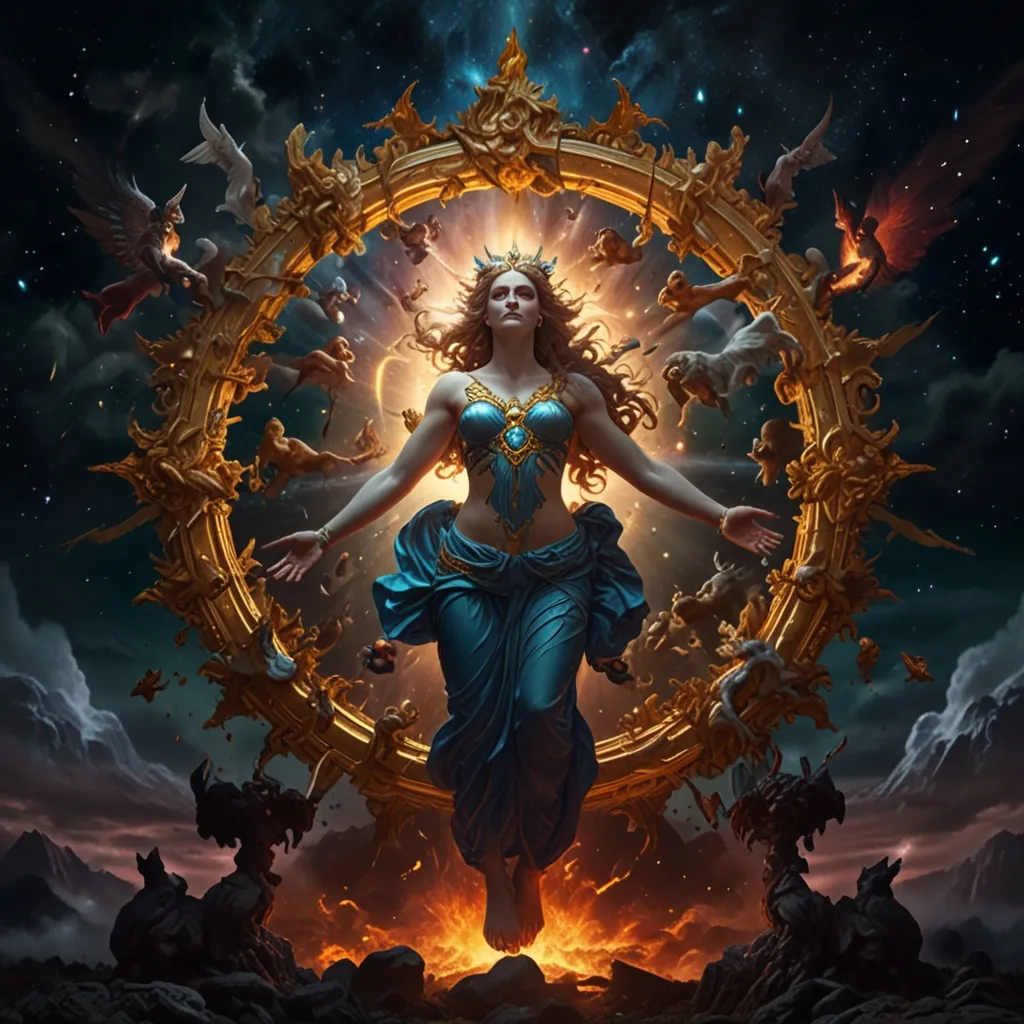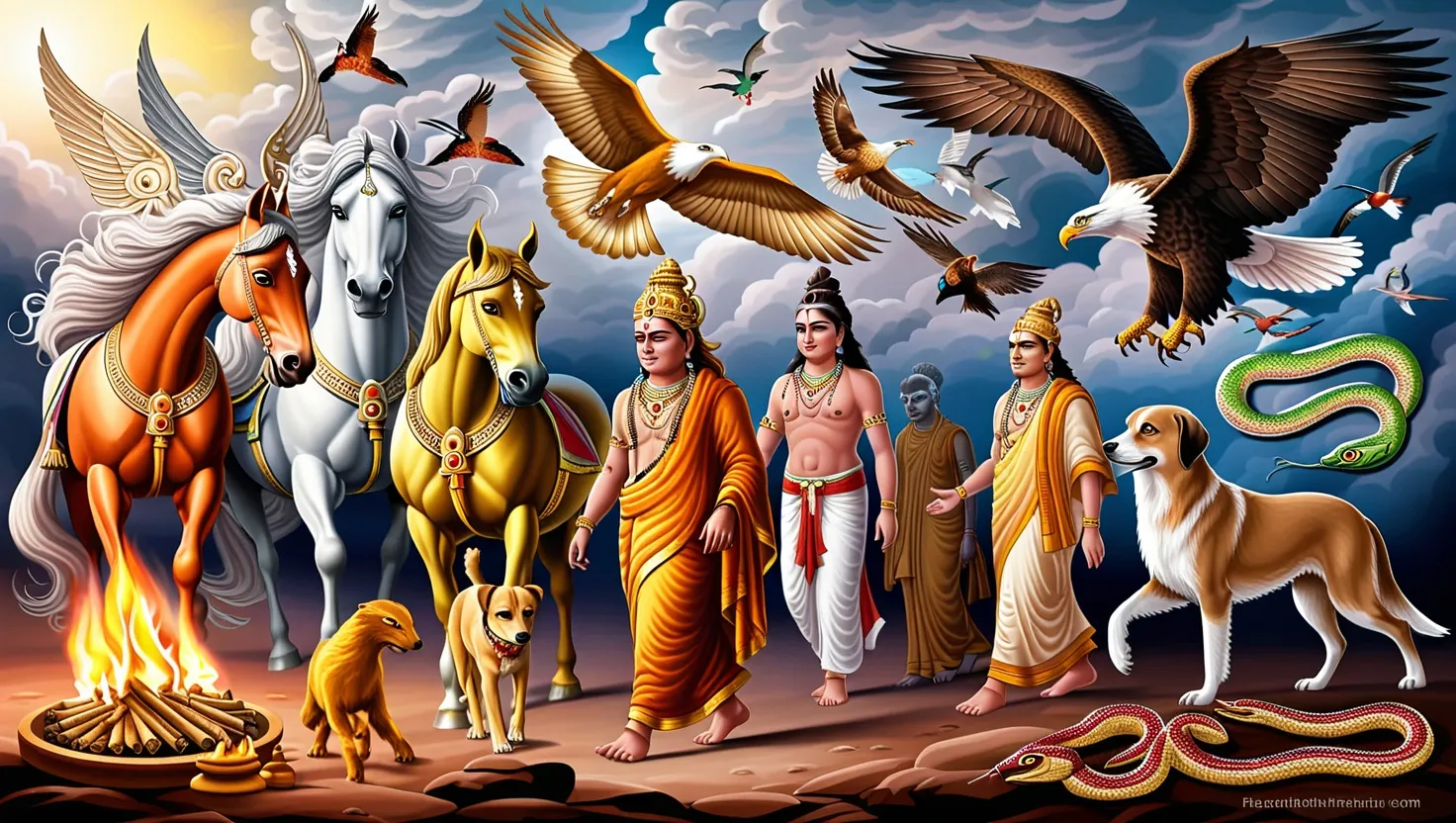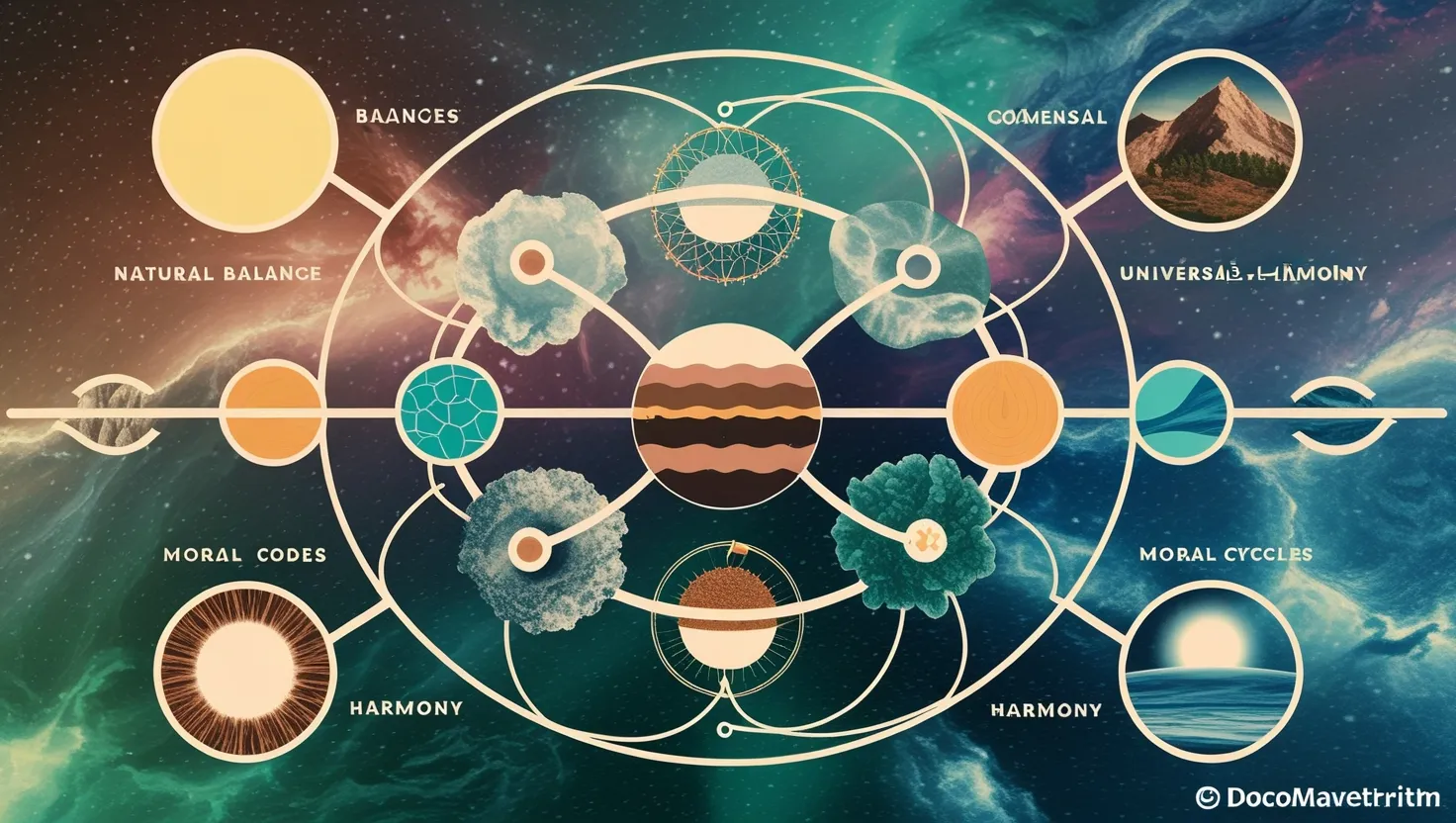Once upon a time, in the infinite expanse of pure nothingness known as Chaos, several divine entities sprang into existence without any assistance. The Earth, Gaia, emerged from this void and brought a few friends with her, including Eros, representing love, the Abyss, symbolizing the underworld, and Erebus, the dark corner of death itself.
Gaia didn’t need any help to give birth to Uranus, the Sky. From their union came the first generation of mighty beings known as the Titans, six males and six females. These Titans were the universe’s first rulers and they brought both power and challenges to the cosmos.
Cronus, one of the Titans, had a fear deeply embedded within him: that his children would someday overthrow him, just like he did with his father, Uranus. So, Cronus came up with a gruesome solution: he started swallowing each of his children as soon as they were born. But Rhea, his wife and sister, wasn’t about to let this horror show continue. She hatched a clever plan to save their youngest child, Zeus. Sneakily, Rhea wrapped a stone in a blanket and handed it to Cronus, who swallowed it without suspecting a thing.
While Cronus was busy digesting a stone, Zeus was growing up in secret, biding his time for the ultimate family showdown. Eventually, he came back to confront his father and forced Cronus to vomit up his siblings. Together, they started an epic war against the Titans. This massive conflict, known as the Titanomachy, raged on for ten long years and ended with the Olympians claiming victory. The defeated Titans were sent packing to the Abyss, condemned to a dark and miserable existence.
Having dethroned his old man, Zeus now ruled as the king of the gods, but his job description also included dealing with some serious prophecies. One chilling prophecy stated that his first wife, Metis, would bear a child more powerful than him. Zeus, taking no chances, swallowed Metis whole while she was pregnant. Spoiler alert: swallowing Metis didn’t quite work out as planned. Athena, a fierce goddess fully armed and ready for action, emerged right out of Zeus’s head. Talk about a headache!
Switching gears a bit, let’s talk about Prometheus, one of the Titans who backed Zeus during the big fight. Prometheus got a particularly creative assignment: to craft humans. Using mud as his medium, he shaped the first humans and even gave them the gift of fire, which he cleverly swiped from the gods. Zeus, allergic to anyone defying him, decided to get back at both Prometheus and humanity. Enter Pandora, the first woman, created as an instrument of divine retribution. She came with a mysterious box and was told, under no circumstances, to open it. But come on, curiosity is a tough cookie to crumble. Pandora eventually opened the box, letting all kinds of evils loose upon the world. The only thing left inside? Hope.
This mythological tale beautifully captures the antics and struggles of gods and humans alike. It’s a timeless reminder of the immense power of the divine and the delicate nature of human life. In a narrative filled with supernatural births, epic wars, and poetic justice, it leaves us pondering the fragile balance of good and evil that shapes our existence.
From Gaia birthing Uranus to Zeus swallowing Metis, these tales are as vividly outrageous as they are profoundly symbolic. The whole saga kicks off with Gaia and Uranus bringing forth the Titans. Cronus, fearing a child rebellion, decides the best fatherly move is to swallow his kids. Rhea’s stone-swapping trick saves Zeus, who grows up plotting Dad’s downfall. When Zeus comes of age, he doesn’t just take out Cronus; he liberates his siblings and sends the Titans to the Abyss, winning the cosmic game of thrones.
Zeus isn’t in the clear yet, though. The prophecy about Metis giving birth to someone stronger than him makes our sky god resort to some next-level paranoia munchies. And so Metis, pregnant and all, ends up inside Zeus, only for Athena to split his skull and make a dramatic entrance that must have looked like the fiercest party crash ever.
Prometheus, with his mud-crafting and fire-stealing antics, portrays a rebellious creativity that earns Zeus’s wrath. His punishment by proxy—Pandora and her infamous box—unleashes all kinds of trouble on unsuspecting humans. Thankfully, hope clings on as the single positive force against a world now filled with miseries.
These ancient stories are like a rollercoaster of divine drama and human tribulation. They remind us repeatedly of the mighty sway of the supernatural and how closely we walk the tightrope between optimism and adversity. From the earth-shaking fights of the Titanomachy to the birth of wisdom from unnatural places, and the creation of life out of simple clay, these tales intertwine to reflect our own battles and beliefs.
Whether it’s Gaia emerging from Chaos or Zeus rising against Cronus, the reflections on power, fear, defiance, and cunning endure through centuries. Athena’s head-splitting birth and the ironic twist of Pandora’s box offer us vivid lessons dressed in almost fantastical exaggeration.
The luminous and somber dance of these mythic narratives is more than just ancient entertainment. They bind us to our shared past and whisper timeless wisdom, making us chuckle, gasp, and reflect on the endless cosmic play of light and shadow that makes up life’s grand theater.






